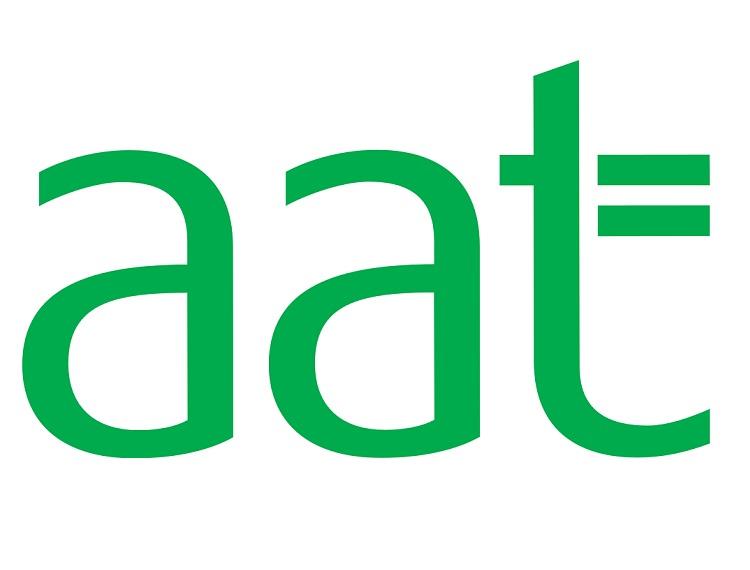Career opportunities matter more than making money for school leavers

With GCSE results being revealed on Thursday 24 August, new research from AAT (Association of Accounting Technicians) reveals that 94% of students awaiting their GCSE results are worried about making career decisions, such as choosing what job they want to do in the future or deciding on what to do after they leave school.
The top worries cited by GCSE students about their future careers are choosing the right job (34%), not knowing what they want to do in the future (20%) and not being as successful as they want to be (13%).
The majority of GCSE students (61%) in the UK said the stress caused by career decisions is having a negative effect on their health. More than a quarter (30%) said that they struggle to sleep at night due to career decision worries, while 19% are either overeating or undereating. Almost one in five (13%) said that they are having panic attacks, and 17% said they don’t think they’re doing as well at school as a result.
Career options matter the most for school leavers
Across all 16-19 year olds in the UK, the research has shown that they are more influenced by career opportunities than money when deciding on what they want to do after school.
The top five drivers when deciding what to do after school are:
|
Factor |
Percentage of students who chose this as the factor that influenced their decision most |
|
Better career options |
23% |
|
Making more money in the long-term |
21% |
|
Developing my skills |
18% |
|
Building life experience |
10% |
|
Doing something fun |
9% |
Students pressured to go to university
The research from AAT has found that almost two thirds (63%) of 16-19 year olds have experienced pressure from their schools to choose to go to university, even though there are a range of pathways that students can take to develop their skills.
Additionally, 19% of 16-19 year olds say their school never spoke with them about apprenticeships, while 46% said their school mentioned apprenticeships but focused more on university.
According to figures obtained from the Department for Education, the proportion of students going to university nationally has increased steadily from 53% in 2012 to 59% in 2015 (see Fig. 1) while apprenticeships remain a small minority (6% in 2015).
Fig. 1 – The proportion of Key Stage 4 (GCSE) students who undertook apprenticeships after leaving school
|
2012 |
2013 |
2014 |
2015 |
|
|
Apprenticeships |
5% |
5% |
5% |
6% |
 Mark Farrar, Chief Executive at AAT, said: “Students are rightly pursuing the path that opens the most doors for them in the future when deciding on what to do after they leave school. However, they are also overwhelmed by the thought that the decisions they make now will affect the rest of their lives.
Mark Farrar, Chief Executive at AAT, said: “Students are rightly pursuing the path that opens the most doors for them in the future when deciding on what to do after they leave school. However, they are also overwhelmed by the thought that the decisions they make now will affect the rest of their lives.
“The reality is that a ‘job for life’ is something of a rarity now; people’s skills and interests tend to change as they build up experience, leading them down different paths along the way.
“The route they choose right now is therefore not necessarily the be-all and end-all for life. Indeed a large number of people studying AAT have chosen to enter the accounting industry at an older age and from a different industry – over half of AAT’s student population is aged 24 or higher, and the average AAT student is 34 years old. However for a school leaver, their next step could be seen as helping them to gain and develop a wider variety of skills. This will ultimately boost their employability, whatever the industry.
“Our data suggests that the current system tends to push students towards university, but some may be better suited to another route such as an apprenticeship – which can offer so many opportunities to learn while benefiting from developing skills associated with entering the workplace earlier and gaining greater financial independence.
“It is important that students are exposed to other options so that they feel most equipped to make an informed choice about the career path that suits them best.”
For more guidance on dealing with your career worries, try AAT’s short online quiz.
About AAT (Association of Accounting Technicians): The UK’s leading qualification and professional body for technical accountants and bookkeepers, it has over 140,000 members in over 100 countries. We offer a range of qualifications that are open to all regardless of previous education or age, such as the AAT Accounting Qualifications that provide a non-degree route into chartered accountancy, and the AAT Bookkeeping Qualifications that can support business growth through accurate and up-to-date financial records. Students encompass a wide range from school and college leavers, to older people hoping to change their career or learn the skills to run their own business.
An AAT Accountant is a qualified accounting professional with the practical and technical skills needed to support businesses with their accounting activities. Typical job roles of an AAT Accountant include: Financial Accountant, Commercial Analyst, Senior Finance Officer, Payroll Manager, VAT Accountant and Tax Supervisor. An AAT Accountant in the UK can sign off the accounts for small companies that meet two out of three of the criteria of turnover less than £10.2 million, total assets less than £5.1 million and less than 50 employees. Currently over half a million businesses trust AAT Accountants and AAT Bookkeepers to service their accounting requirements.
AAT awards around 90% of all technical qualifications in accounting in the UK, and generous exemptions are provided by many of the senior UK bodies including ACCA, CIPFA, ICAEW, CIMA and ICAS. AAT has been listed in the Sunday Times 100 Best Companies to Work For 2017.
OnePoll carried out an online and mobile survey of 1,000 16-19 year olds between 7 and 12 July 2017. Of these, 321 have undertaken GCSEs this year. Results have been weighted to a nationally representative criteria.
Research relating to how many jobs the average worker holds in a lifetime relates to an AAT story published in November 2015. In this research, OnePoll carried out an online and mobile survey of 2,000 UK adults aged 26-70 and employed for at least ten years, between 21 and 23 October 2015. Results have been weighted to a nationally representative criteria.
Statistics contained in Figure 1 followed a Freedom of Information request carried out by Hill and Knowlton on behalf of AAT on 20 June 2017. The full request and response from the Department for Education can be found here.











Responses